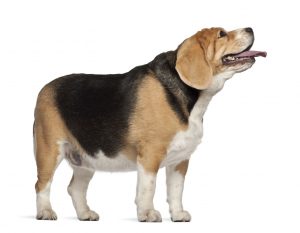 Pet Weight Control Explained
Pet Weight Control Explained
Like many humans, there is a large percentage of overweight pets in the United States. A 2012 survey noted that 53 percent of dogs and 58 percent of cats are considered overweight or obese. Not only does the excess weight keep your pet from being active, it puts them at risk for diseases such as diabetes, osteoarthritis, hypertension and numerous cancers.
Obesity occurs when your pet takes in more calories than they expel. In many cases the weight gain can be attributed to overeating as well as a lack of exercise. In a healthy pet you should be able to locate both his ribs and spine through a thin layer of fat. Many vets recommend weighing your pet monthly. If you don’t have access to a pet scale, you can easily weigh your pet at home. First begin by weighing yourself on the scale, then weigh yourself again while holding your pet. Simply subtract the difference to calculate your pet’s weight.
There are several breeds that are prone to obesity later in life. Those breeds include Dashshunds, Beagles, Cocker Spaniels, Labs, Golden Retrievers and Rottweilers. If your pet is overweight and not one of the breeds listed, you as an owner could be to blame. Allowing your pet to over indulge in treats and human food could be to blame. In most cases it isn’t pet food that is causing the weight gain, it is excessive snacking and eating between meals.
Portion control is a critical factor in keeping your pet healthy. Most pet food suppliers include serving information on the packaging, but due to variables such as age and health conditions, it is best to discuss how much and how often to feed your pet with your veterinarian. If you or your family is guilty of passing out too many treats, considering opting for healthier treat alternatives such as veggies or rice cakes. It is also important to provide plenty of attention and affection to your pet in non-treat related ways.
Increasing your pet’s physical activity can also help to manage their weight. Exercise will help to burn calories, reduce appetite and can alter body composition. Grab a ball and start a game of fetch or enjoy a walk with your furry friend.
Controlling your pet’s weight can be critical to keeping your dog healthy, happy and active.
